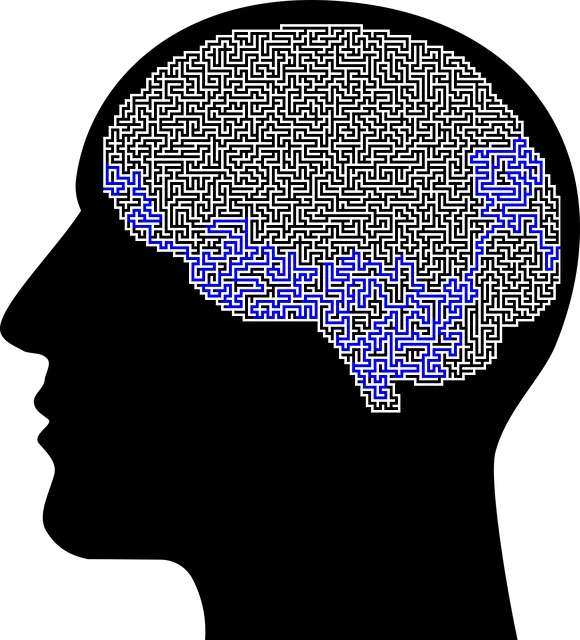The Lafayette Kaiser Permanente mental health department prioritizes cultural sensitivity as a core principle in its mission to serve a diverse community effectively. Through rigorous training, they equip professionals with knowledge of various ethnic and racial groups' perspectives on mental wellness. This holistic approach includes culturally tailored risk assessments, fostering trust and improving outcomes for patients from different backgrounds. Initiatives like Stress Management Workshops, Trauma Support Services, and personalized Self-Care Routine Development empower individuals while respecting their cultural identities, making it a model for culturally competent care with proven positive patient outcomes.
In the diverse landscape of healthcare, cultural sensitivity is a cornerstone of effective mental health practice. This article explores essential aspects of cultural competence in mental healthcare at Lafayette Kaiser Permanente, where patient outcomes are profoundly impacted by awareness and understanding of diverse cultural backgrounds. We delve into specific strategies implemented in their Mental Health Department, showcasing how measured approaches enhance care for the vast number of patients they serve. By examining these initiatives, we aim to illuminate best practices that can be adapted and expanded within similar healthcare settings.
- Understanding Cultural Competence in Mental Healthcare
- The Impact of Cultural Sensitivity on Patient Outcomes
- Strategies for Integrating Cultural Awareness at Lafayette Kaiser Permanente
- Measuring and Enhancing Cultural Sensitivity within the Mental Health Department
Understanding Cultural Competence in Mental Healthcare

Cultural sensitivity is a cornerstone of effective mental healthcare practice, reflecting an understanding that people’s experiences and expressions of mental health issues are deeply influenced by their cultural backgrounds. This concept goes beyond mere awareness; it involves integrating this knowledge into every aspect of care delivery. At Lafayette Kaiser Permanente’s mental health department, for instance, the number one priority is to offer services that resonate with diverse cultural needs.
Professionals in this department undergo rigorous training to enhance their cultural competence, learning about various ethnic and racial groups’ unique perspectives on mental wellness and stress reduction methods. They’re also equipped to conduct comprehensive risk assessments tailored to each individual’s cultural context, ensuring that interventions are not only safe but also culturally affirming. This holistic approach aims to bridge the gap between healthcare providers and patients from different backgrounds, fostering trust and improving outcomes in mental health treatment.
The Impact of Cultural Sensitivity on Patient Outcomes

Cultural sensitivity plays a pivotal role in shaping positive patient outcomes within mental healthcare practices, particularly in diverse communities. The Lafayette Kaiser Permanente mental health department has recognized this and actively fosters an environment that respects and incorporates cultural nuances. By doing so, they ensure that patients from various ethnic, racial, and socioeconomic backgrounds receive tailored care aligned with their unique beliefs and values.
This cultural sensitivity extends beyond basic understanding to the active integration of practices like Stress Management Workshops Organization sessions, Compassion Cultivation Practices, and positive thinking exercises. These initiatives empower individuals to navigate their mental health journeys while preserving their cultural identities. Research indicates that when mental healthcare providers demonstrate cultural competence, patients tend to experience higher levels of satisfaction, adherence to treatment plans, and overall improved mental well-being.
Strategies for Integrating Cultural Awareness at Lafayette Kaiser Permanente

Lafayette Kaiser Permanente’s mental health department recognizes the importance of cultural sensitivity in providing effective care. To integrate cultural awareness, they’ve implemented several strategies tailored to their diverse patient population. One key approach is offering specialized Trauma Support Services, addressing the unique needs of individuals with a history of trauma from various cultural backgrounds. By incorporating these services, the department aims to create a safe and supportive environment for all patients.
Additionally, Lafayette Kaiser Permanente encourages the development of personalized Self-Care Routine Development for Better Mental Health. This initiative respects individual cultural practices and beliefs while promoting healthy coping mechanisms. Through education and collaboration, patients are empowered to integrate self-care routines aligned with their cultural identities, potentially reducing symptoms of depression and enhancing overall well-being.
Measuring and Enhancing Cultural Sensitivity within the Mental Health Department

Cultural sensitivity is a cornerstone in providing effective mental healthcare, especially within diverse communities served by institutions like Lafayette Kaiser Permanente’s mental health department. Measuring and enhancing this aspect involves several key strategies. One approach is to conduct regular staff training sessions focused on cultural competency, ensuring professionals are equipped to understand and appreciate the unique needs and perspectives of patients from various ethnic, racial, and socio-cultural backgrounds.
Additionally, implementing feedback mechanisms allows for continuous improvement. This can include patient satisfaction surveys, focus groups, or individual check-ins where individuals share their experiences and offer guidance. By analyzing this data, the mental health department can identify areas for growth in cultural sensitivity and tailor services accordingly. Encouraging open dialogue about cultural differences fosters an inclusive environment, enhancing the overall quality of care provided to a diverse patient population.
Cultural sensitivity is a cornerstone of quality care, especially in the mental healthcare sector. As evidenced by the strategies implemented at Lafayette Kaiser Permanente’s mental health department, embracing cultural competence leads to improved patient outcomes and enhanced satisfaction. By measuring and continuously enhancing cultural sensitivity, healthcare providers can ensure that services are tailored to meet the unique needs of diverse patient populations. This approach not only benefits individuals but also contributes to a more inclusive and effective healthcare system overall, as seen in the successful integration of cultural awareness at Lafayette Kaiser Permanente, serving its diverse community effectively.






